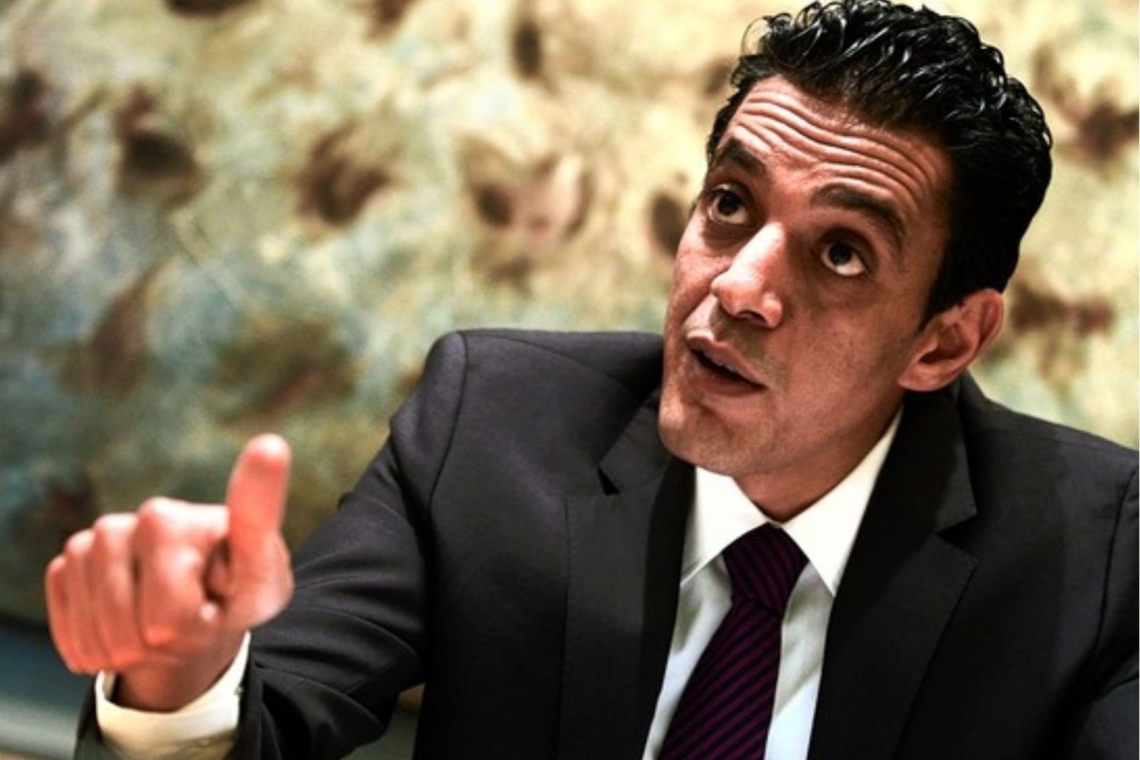DUBAI—The new leader of Libya's sovereign-wealth fund said he has recommended that an independent committee investigate all past investments made during the regime of Col. Moammar Gadhafi for possible corruption.
In an interview, Rafik Nayed, the Libyan Investment Authority's acting chief executive since last month, said the fund's investment operations are on hold while a new management team sifts through $65 billion in holdings and tries to unravel previous dealings with people tied to Col. Gadhafi, the former Libyan leader ousted in a rebel uprising this year.
"We aren't interested in new deals," said Mr. Nayed, who was put in charge of the sovereign-wealth fund by Libya's transitional prime minister, Mahmoud Jibril. "My mandate…is to untangle the inheritance of the [Gadhafi] regime and stabilize" the country's national wealth.
The Libyan Investment Authority was set up in 2006 to manage Libya's oil revenue and "diversify the dependence of national income," according to the fund's website. Leaders of Libya's fledgling government suspect that the Libyan Investment Authority became a source of enrichment for associates of Col. Gadhafi, causing mismanagement of investments and poor returns.
Mr. Nayed said the executive authority run by Mr. Jibril has verbally signed off on the formation of an independent investigative committee, though the panel likely is on hold until a new cabinet is named. This week, Libya's transitional prime minister said he expects a new government to be formed by early October.
Forensic accounting under Mr. Nayed shows that $24.5 billion, or about one-third of the sovereign-wealth fund's assets, held by various subsidiaries are invested mostly in Africa or cash.
In the African deals, "we still don't know where much of this money has gone," he said in the interview.
Officials still are looking for documents that might explain the investments and the accounting for them. Some of Libya's Africa investments include stakes in regional telecom companies and hotels.
The sovereign-wealth fund also has $19.2 billion in cash. As of March, its five biggest stock holdings totaled $4.01 billion, led by Italian bank UniCredit SpA, Italy's Eni SpA, the largest foreign oil company in Libya, and German industrial conglomerate Siemens AG SI 6.37% .
Allegations of mismanagement and corruption at the Libyan Investment Authority surfaced as rebel forces this year pushed to take control of the country from Col. Gadhafi. Scrutiny of financial deals signed during Col. Gadhafi's 42-year reign is part of a broader push by Libya's new leaders to rebuild the nation's reputation in the international business community.
Many Libyans also want to hold people close to Col. Gadhafi's regime accountable. Mr. Nayed said the independent committee should be packed with finance professionals and forensic accountants to prevent a witch hunt.
"The dark cloud of poor governance and corruption of the previous regime will be with us for a long time unless there is a comprehensive review" of past investments, Mr. Nayed said. "There has to be a structure [for the review]. Every losing investment does not indicate corruption, and every corrupt deal does not mean that [the investment] lost money."
Mr. Nayed said he is particularly concerned about the $4 billion in derivative and alternative investments on the fund's books, including past investments made with Goldman Sachs Group Inc. and Société Générale SA. Mr. Nayed said he has concerns that investments in derivatives and other alternative vehicles didn't maximize returns for the Libyan people and may have been used to enrich officials close to the Gadhafi regime.
As previously reported by The Wall Street Journal, the Libyan Investment Authority suffered losses of $1.3 billion on options trades with Goldman in 2008. The Securities and Exchange Commission is examining a $50 million payment offered by Goldman to the Libyan Investment Authority for an outside advisory firm owned by the son of the head of Libya's state-run oil company.
The payment never was made, and Goldman has denied any wrongdoing. A Goldman spokesman declined to comment.
SEC officials are investigating whether Goldman and other financial firms might have violated bribery laws in dealings with the Libyan sovereign-wealth fund.
Société Générale paid an unspecified amount to a Panama-registered company, Leinada Inc., to help structure and advise a $1 billion investment vehicle in 2008 for the Libyan fund, according to deal-related documents reviewed by the Journal.
Officials working with Libya's new governing authority are examining whether any payments made by the French bank as part of its business relationship with the Libyan Investment Authority ended up in the hands of people close to Col. Gadhafi's regime.
According to its corporate filings in Panama, Leinada had four directors between 2005 and 2010, including a Libyan businessman, Walid Giahmi. Lawyers for Mr. Giahmi have said that Leinada was never used to transfer money to a Libyan politician, public official or person connected to the previous regime.
A spokesman for Société Générale declined to comment. The bank previously has said it "complies with all applicable rules and regulations" related to sovereign-wealth funds.
Mr. Nayed, who reports directly to Mr. Jibril, is a former board member of Libyan-owned oil company Tamoil. Mr. Nayed said in the interview he worked secretly this year with the Libyan rebels and European and other Western officials to identify and freeze Libyan assets. He also said he blocked hundreds of millions of dollars in oil-generated funds in overseas bank accounts from returning to Tripoli. That deprived the Gadhafi regime of badly needed fuel and related products as the war escalated.
The Libyan Investment Authority's new leader said he lacks the power to change the sovereign-wealth fund's investment strategy or portfolio, because the fund doesn't have a functioning board. Mr. Nayed said he won't make any investment moves until a new board is in place, adding that he has held preliminary discussions with the World Bank to help establish strong governance guidelines.
Mr. Nayed said he doesn't intend to stay at the Libyan Investment Authority for an extended period.


